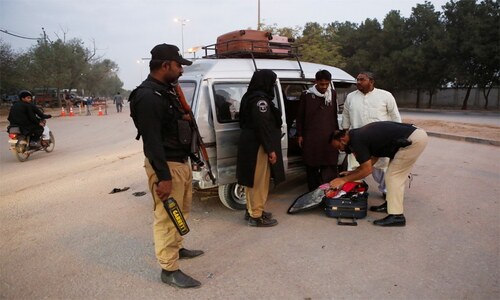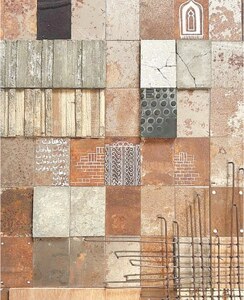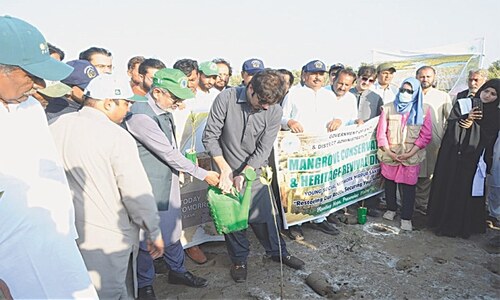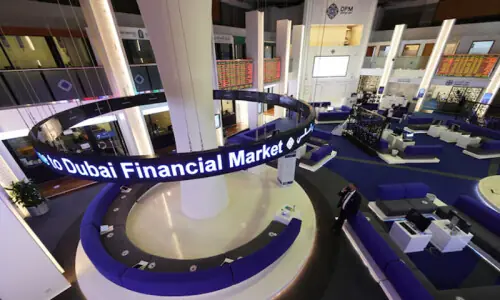KARACHI: “Freedom of the press is needed for democracy to grow and blossom. Democratic freedom is based on human rights, which also talks about freedom of expression. Not being informed about what is happening in your country is like living with a disability,” said senior journalist Ghazi Salahuddin.
He was speaking on the occasion of World Press Freedom Day on Thursday when the Department of Social Sciences at the Shaheed Zulfikar Ali Bhutto Institute of Science and Technology (Szabist) organised a seminar on the topic of ‘Electronic media in Pakistan: challenges and issues’.
“I was a journalist even during Ziaul Haq’s time but what I see happening in the media now I didn’t see even then,” said Mr Salahuddin.
Comparing the electronic media to the print media, he said that the press is a forum for rational debate while the electronic media has few intellectual resources.
Senior journalist says some unknown people, not Pemra, are real regulators of TV channels
“Intellectual deprivation has really hurt the electronic media. Meanwhile, the print media is accessed by thoughtful and educated people but the electronic media is for the masses. The analysis of issues that you find in print you don’t see on TV. This itself is an issue because everyone doesn’t read newspapers. The talk shows confuse people even further because no one there talks objectively based on facts,” he said.
Talking about media curbs or restraints, senior journalist Mazhar Abbas narrated an incident when he was working with AFP during the Kargil conflict.
“I took my cameraman to the office of the ISPR for coverage. But citing security reasons they told us that it would not be possible,” he said. “I, then, reminded them that even if they stopped us, the pictures and stories would surface anyway, but from the Indian side, which is exactly what happened,” he added.
“It was also after Kargil that it was decided to issue licences to private channels without deciding on the parameters. So many new people joined the media while there were only one or two media houses which trained them,” he said, while narrating another incident where talk show host P.J. Mir did not know how to control the harsh words and abusive language occurring before him between Ghulam Mustafa Khar and Ahmed Raza Kasuri on live TV.
This brought him to the subject of the regulatory body, the Pakistan Electronic Media Regulatory Authority (Pemra).
“The first Pemra chief was an ex-inspector general, whose focus was on controlling cable operators. The regulators are government-appointed so they regulated according to the government,” he said, adding that Pemra was the regulator on paper and the real regulators where some unknown people.
He said that when a leading newspaper was banned from cantonment areas or when a popular channel goes off air, neither the ministry of information nor Pemra know anything about it.
“Here your biggest problem is: knowing where the restrictions come from,” he said.
Senior journalist Imtiaz Alam also said that the country did not completely start to enjoy press freedom when it started to be snatched away.
“There is a kind of hybrid warfare going on as far as freedom of expression and the press are concerned. Anyone who says anything is labelled as an enemy of the state here,” he said.
Writer and academic Dr Tauseef Ahmed Khan regretted the fact that despite it being World Press Freedom Day, the city was silent, though media is the fourth pillar of state.
He also said that television channels do not have a main page, or a district or city page. “So any news may be coming at prime time,” he said.
Earlier, Riaz Sheikh, Dean of Social Sciences at Szabist, said that in Pakistan there was a tradition of engineered politics. “But we want a media that is free, objective and truthful,” he said.
Published in Dawn, May 4th, 2018


































